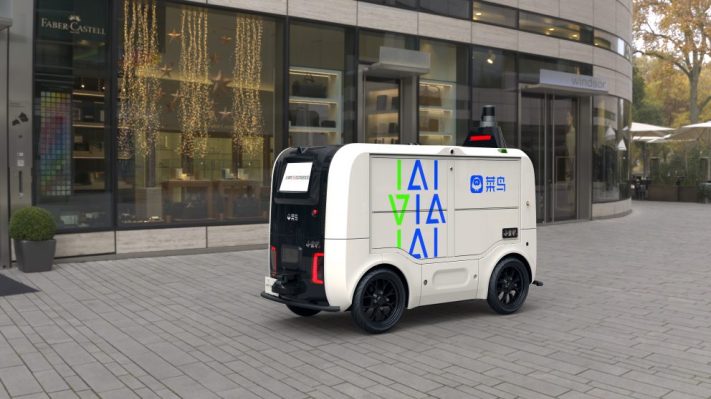Alibaba founded Damo Academy in 2017 to carve out a program focused on cutting-edge research that is relatively free of short-term money-making pressure. One of the Academy’s 16 labs conducts research on autonomous driving, which just announced a major change today.
Damo’s autonomous vehicle lab will merge into Cainiao, Alibaba’s global logistics network, and will no longer operate under the basic research institute.
The news was first reported by the state-affiliated China Securities Journal. A spokesperson at Alibaba confirmed the reshuffle with TechCrunch.
The structural change signals a greater urgency for Alibaba to monetize its investment in autonomous driving, which is notoriously capital-intensive. Logistics is probably an easy place to start because a self-driving delivery van is ferrying goods rather than humans and its routes are simpler last-mile environments than bustling downtown roads.
Indeed, Damo has been powering Cainiao’s last-mile delivery needs for six years with its flagship robovan called Little Donkey, ferrying e-commerce, restaurant and grocery orders. As of June 2022, the self-driving, Nuro-like van had surpassed 10 million accumulative deliveries, the company said at the time.
In 2021, Alibaba expected Little Donkey’s fleet to be delivering one million parcels a day in three years’ time. If the team is on track with the projection, Little Donkeys could be hauling a big chunk of Cainiao’s packages by now. To get a sense of the logistics giant’s scale, its peak daily deliveries exceeded 18 million during Double 11, China’s annual shopping bonanza equivalent to Black Friday, in 2022.
Cainiao’s footprint now reaches many countries, following Alibaba’s export e-commerce business. It’s recently been building up a more localized presence outside China, for example, by opening logistics centers in Brazil, Mexico and Chile. It won’t be a surprise to see Little Donkeys rolling down the sidewalks of Latin America someday.
